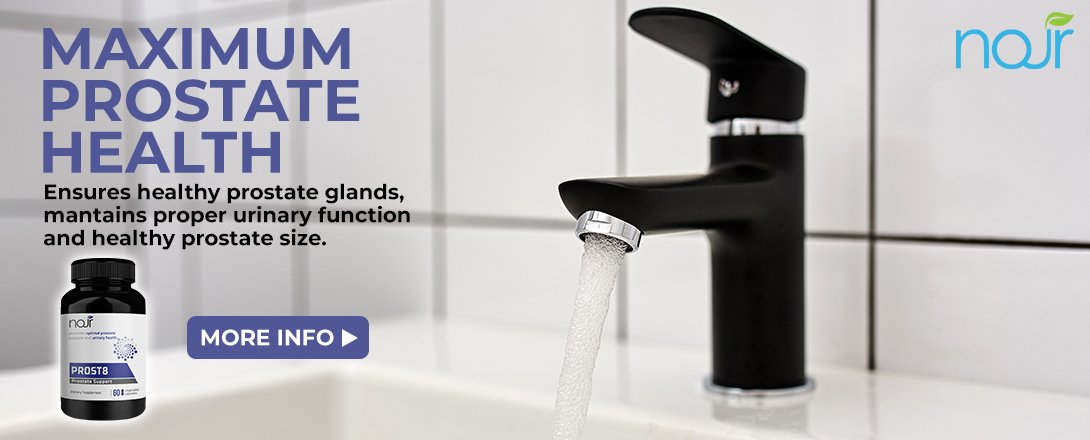What is Prostate?
Many men aren’t sure what their prostate is, what it does, or when to call a doctor if they think they might have a problem. So, information is the best tool you have in dealing with this aspect of men’s health.
It is a small gland that is part of the male reproductive system. It’s supposed to be about the shape and size of a walnut. It rests below your bladder and in front of your rectum. It surrounds part of the urethra, the tube in your penis that carries pee from your bladder.
The prostate helps make some of the fluid in semen, which carries sperm from your testicles when you ejaculate. As you age, your prostate can become larger. It’s a normal part of aging for most men.
By the time you reach age 40, your prostate might have gone from the size of a walnut to the size of an apricot. By the time you reach 60, it might be the size of a lemon. Because it surrounds part of the urethra, the enlarged prostate can squeeze that tube. This causes problems when you try to pee. Typically, you won’t see these problems until you’re 50 or older, but they can start earlier.
You might hear a doctor or nurse call this condition benign prostatic hyperplasia, or BPH for short. It is not cancerous.
Who Might Get an Enlarged Prostate?
BPH is common and cannot be prevented. Age and a family history of BPH are two things that increase the chances you might get it. A few stats on that:
- Some 8 out of every 10 men eventually develop an enlarged prostate.
- About 90% of men over the age of 85 will have BPH.
- About 30% of men will find their symptoms bothersome.
In benign prostate disease, the cells are normal prostate gland cells and are not cancerous. It is possible for men with BPH to go on to develop prostate cancer as well. But there is no clear evidence to suggest that having BPH leads to, or increases, the risk of prostate cancer.
What is Prostate Cancer?
In the vast majority of cases, the prostate cancer starts in the gland cells. Researchers do not know exactly what causes prostate cancer. But they have found some risk factors and are trying to learn just how these factors cause prostate cells to become cancer.
Prostate cancer is usually a very slow growing cancer, often causing no symptoms until it is in an advanced stage. Most men with prostate cancer die of other causes, and many never know that they have the disease. But once prostate cancer begins to grow quickly or spreads outside the prostate, it is dangerous.
Experts say that prostate cancer starts with tiny alterations in the shape and size of the prostate gland cells – Prostatic intraepithelial neoplasia (PIN). Nearly 50% of all 50-year-old men have PIN. The cells are still in place – they do not seem to have moved elsewhere – but the changes can be seen under a microscope. Cancer cells would have moved into other parts of the prostate. Doctors describe these prostate gland cell changes as low-grade or high-grade; high grade is abnormal while low-grade is more-or-less normal.
Any patient who was found to have high-grade PIN after a prostate biopsy is at a significantly greater risk of having cancer cells in his prostate. Because of this, doctors will monitor him carefully and possibly carry out another biopsy later on.
Prostate cancer primarily affects the male urinary and reproductive systems. Urinary problems can include difficulty starting and stopping urination or a weakened urine stream, feeling the need to urinate more than usual, blood in the urine, or a burning sensation during urination.
Causes of prostate cancer
It is not known exactly what causes prostate cancer, although a number of things can increase your risk of developing the condition.
These include:
- Age –risk rises as you get older and most cases are diagnosed in men over 50 years of age.
- Ethnic group –prostate cancer is more common among men of African-Caribbean and African descent than in men of Asian descent.
- Family history –having a brother or father who developed prostate cancer under the age of 60 seems to increase the risk of you developing it. Research also shows that having a close female relative who developed breast cancer may also increase your risk of developing prostate cancer.
- Obesity – recent research suggests that there may be a link between obesity and prostate cancer.
- Exercise – men who regularly exercise have also been found to be at lower risk of developing prostate cancer.
- Diet – research is ongoing into the links between diet and prostate cancer. There is evidence that a diet high in calcium is linked to an increased risk of developing prostate cancer.
What are the symptoms of prostate cancer?
Prostate cancer may cause no signs or symptoms in its early stages.
Prostate cancer that is more advanced may cause signs and symptoms such as:
- Trouble urinating – When the prostate presses against the urethra, you can have trouble passing urine. Sometimes, a urinary problem is caused by a prostate cancer tumor that is pressing on the urethra. Most often, it is because of benign prostatic hyperplasia (BPH), which is not cancer but does make the prostate grow larger.
- Decreased force in the stream of urine – the urine stream is slow to start and lack of force to the urine flow, which makes directing the stream difficult.
- Blood in the semen – Blood in the semen is known as hematospermia. Prostate biopsy is the most common cause of blood in the semen. Blood in the semen can be caused by tumors, infections, anatomical abnormalities, stones, or inflammation in many sites throughout the genitourinary system.
- Discomfort in the pelvic area – Groin pain could be a sign of cancer affecting the bones. The groin is the area at the top of the leg where the inner thigh meets the body. This area contains a lot of lymph nodes.
- Bone pain – If prostate cancer spreads to other parts of the body, it nearly always goes to the bones first. Bone metastasis can be painful and can cause other problems, such as fractures (breaks) or high blood calcium levels, which can be dangerous or even life threatening.
- Erectile dysfunction – Also called impotence, is the inability to develop or sustain an erection satisfactory for sexual intercourse. Though prostate cancer is not a cause of erectile dysfunction, treatments for the disease can cause the problem. These include: Surgery to remove the entire prostate gland.
Getting a second opinion
You may also want to get a second opinion. This can give you more information and help you feel more certain about the treatment plan you choose. Many men find it helpful to get a second opinion about the best treatment options based on their situation, especially if they have several choices.
Prostate cancer is a complex disease, and doctors can differ in their opinions regarding the best treatment options. Speaking with doctors who specialize in different kinds of treatment may help you sort through your options. If you aren’t sure where to go for a second opinion, ask your doctor for help.
You may hear about alternative or complementary treatment methods that your doctor hasn’t mentioned. These methods can include vitamins, herbs, special diets, or other methods such as acupuncture or massage, to name a few.
Tips for a healthy prostate
- Keep a healthy weight and exercise regularly.
- Eat more fruits and vegetables. Tomatoes, watermelons, pomegranate seeds, pink grapefruits, guava and papaya contain lycopene, a powerful antioxidant. Cruciferous vegetables such as broccoli, cauliflower, cabbage, Brussels sprouts, bok choy and kale also are good choices.
- Let your doctor know if you have a family history of prostate cancer. Having a father or brother with prostate cancer more than doubles a man’s risk of developing this disease.
- Include more soy in your diet from sources such as tofu, soy nuts or soy flour or powders.
- Don’t smoke.
- Eat more selenium-rich foods such as wheat germ, tuna, herring and other seafood and shellfish, beef liver, kidney, eggs, sunflower and sesame seeds, cashews, mushrooms, garlic and onions. Selenium reduces risk of prostate cancer.
- Get a PSA blood test and digital rectal exam annually, beginning at age 50. ThePSA test is a blood test used primarily to screen for prostate cancer. The test measures the amount of prostate-specific antigen (PSA) in your blood. PSA is a protein produced by both cancerous and noncancerous tissue in the prostate, a small gland that sits below a man’s bladder.
Ways to improve prostate health.
- Choose foods that can reduce inflammation and help with better prostate health.
- Avoid foods that can irritate and harm the prostate for example, spicy foods can worsen symptoms of prostatitis, while processed foods, artificial sweeteners, sugary foods, dairy products, red meat, and fried foods can promote inflammation.
- Plant protein is a better choice than animal protein.
- A healthy weight will reduce your enlarged prostate symptoms.
- Exercise leads to better prostate health and less sleepless nights.
- Certain natural supplements can support a healthy prostate.
- Managing and balancing hormone levels is one of the best ways to restore prostate health.
- Reducing stress can also reduce your prostate size.



